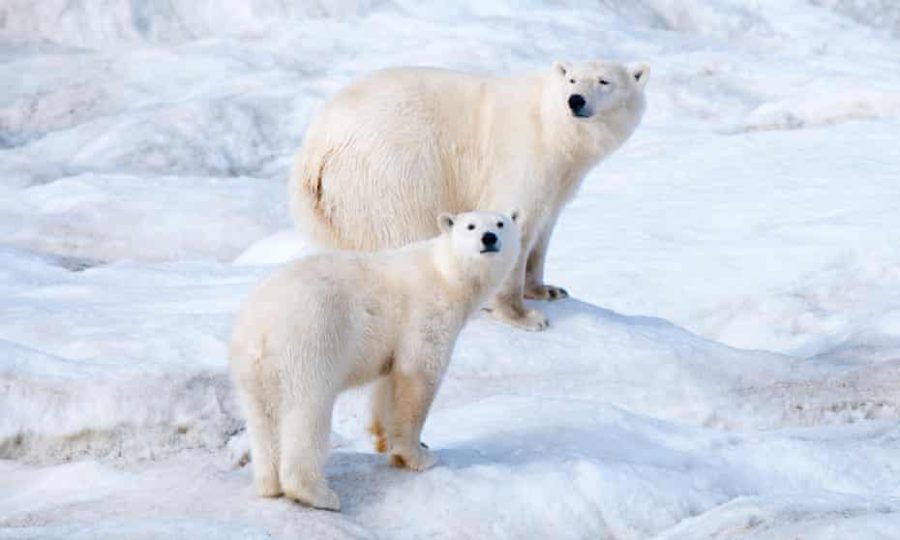Polar bears migrate to Russia due to climate change
February 11, 2022
As global warming becomes an increasingly prevalent issue in society, polar bears have been migrating to Russia from Alaska in search of more suitable living conditions due to a lack of summer sea ice.
Polar bears, inhabitants of the Arctic Circle, have adapted to live on sea ice, and thus have a much harder time finding food on land. With average temperatures rising about 4.8 degrees Celsius in Utqiagvik (formerly Barrow), Alaska since 1971, melting ice has pushed polar bears to swim towards the Chukchi Sea near Russia.
A recent Polar Bears International report says that climate change is the “number one threat” to Arctic-dwelling polar bears, and the southern Beaufort Sea has seen that threat turned into reality, with a 40 percent drop in polar bear populations there between 2001 and 2010.
“Back in the late 1990s there were 127 here,” Herman Ahsoak, a whaling captain from Utqiagvik, said to The Telegraph. “I had never seen so many in my life. We had a dedicated patrol team to keep watch and protect the town. But when the sea ice really started to retreat, we stopped seeing them so often…they have mostly moved on from here.”
As a result of the melting sea ice making it harder for them to sustain themselves, the growing polar bear population in the Chukchi Sea is “in better condition, larger and appeared to have higher reproductive rates than bears inhabiting the southern Beaufort Sea,” Dr. Karyn Rode, Research Wildlife Biologist, said.
Yet the thriving population in the Chukchi Sea is likely to only be temporary, as polar bears are categorized as “vulnerable to extinction” by the International Union for Conservation of Nature. With high greenhouse gas emissions, polar bears are likely to run out of ice and will mostly die off by 2100, according to a study in Nature Climate Change. Even if some emissions goals are reached, some polar bear groups will still not make it out of the century.
“One thing is carpooling, because cars emit a ton of nitrous oxide that depletes the ozone layer and melts the ice in the arctic,” Charlotte McConville (‘22), Vice President of MAD Climate Leaders, said. “It’s easy to carpool and it can make a difference if everybody carpools as much as they can. [Cows] release a lot of methane which is another thing that depletes the ozone layer, so eating less red meat and meat that comes from very large facilities could also harm other factors of climate change.
These solutions can help keep polar bears afloat on the Arctic Sea Ice, despite the increasing challenges to maintain a healthy population.
“The trajectory we’re on now is not a good one, but if society gets its act together, we have time to save polar bears,” Dr. Steven Amstrup, chief scientist of Polar Bears International, said. “And if we do, we will benefit the rest of life on Earth, including ourselves.”



